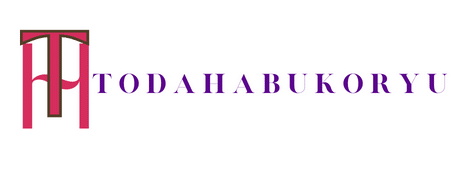Generalist chatbots vs. specialized chatbots: advantages and disadvantages
In the rapidly evolving landscape of artificial intelligence, chatbots have become a staple tool for businesses and individuals alike. These conversational agents come in two primary forms: generalist chatbots and specialized chatbots. Each type offers distinct advantages and disadvantages, making them suitable for different applications. Understanding the nuances between generalist and specialized chatbots is important for selecting the right tool for a specific purpose.
Generalist chatbots: flexibility and versatility
Generalist chatbots, often powered by advanced natural language processing (NLP) models like GPT-4, are designed to handle a wide range of topics and queries. You can use Chat GPT for optimizing digital services. Their primary advantage lies in their flexibility and versatility. These chatbots can engage in conversations about various subjects, making them suitable for customer service, personal assistance, and even casual chatting.
Also to see : How Are Advanced Algorithms Transforming Facial Recognition Technologies?
However, the broad capabilities of generalist chatbots come with certain drawbacks. Their expansive training data, while allowing them to cover many topics, may lead to superficial knowledge in specific areas. They might struggle with providing in-depth, accurate information on niche subjects, as their training data spans a wide spectrum. Additionally, the versatility of generalist chatbots can sometimes result in less precise responses, which might not meet the specific needs of users seeking detailed and accurate information.
Specialized chatbots: expertise and precision
On the other hand, specialized chatbots are designed to focus on a particular domain or function. These chatbots are trained on specific datasets related to their intended field, such as healthcare, finance, or technical support. The primary advantage of specialized chatbots is their expertise and precision. By narrowing their focus, they can provide highly accurate and detailed responses within their area of specialization.
Also to see : Can Smart Contact Lenses Revolutionize the Way We Interface with Technology?
Despite their precision, specialized chatbots also have limitations. Their narrow focus means they are not as versatile as generalist chatbots. If a user asks a question outside the chatbot’s area of expertise, the response may be inadequate or irrelevant. This limitation can be a significant drawback for businesses or users who require a more comprehensive range of interactions.
Integration and deployment
The integration and deployment processes for generalist and specialized chatbots also differ. Generalist chatbots, with their broad capabilities, are easier to integrate into various platforms and applications. They can serve multiple purposes within a single deployment, reducing the need for multiple specialized systems. This versatility simplifies the deployment process and can result in cost savings for businesses. For instance, a single generalist chatbot can handle customer service, provide product information, and assist with troubleshooting, all within one interface.
Conversely, specialized chatbots require a more tailored integration approach. Their deployment involves aligning the chatbot with specific systems and datasets pertinent to their specialization. This process can be more complex and time-consuming, but it ensures that the chatbot performs optimally within its designated area. Businesses that require high accuracy and detailed responses in a particular field, such as legal advice or technical support, may find the investment in specialized chatbot integration worthwhile.
User experience and satisfaction
User experience and satisfaction are critical factors in evaluating the effectiveness of chatbots. Generalist chatbots offer a conversational experience that feels more natural and engaging due to their broad knowledge base. They can handle varied user inputs, providing a seamless interaction flow. Specialized chatbots, while potentially less engaging in general conversation, excel in delivering accurate and contextually relevant responses. Users seeking specific information or assistance within the chatbot’s domain are likely to experience higher satisfaction levels due to the chatbot’s precision and expertise.
In summary, both generalist and specialized chatbots offer unique advantages and face distinct challenges. Generalist chatbots provide flexibility and versatility, making them suitable for a wide range of applications but may lack depth in specific areas. Specialized chatbots deliver expertise and precision within their domains but are limited in their versatility and require more intensive development efforts. The choice between generalist and specialized chatbots depends on the specific needs and goals of the business or user, as well as the desired balance between breadth and depth of interaction.
